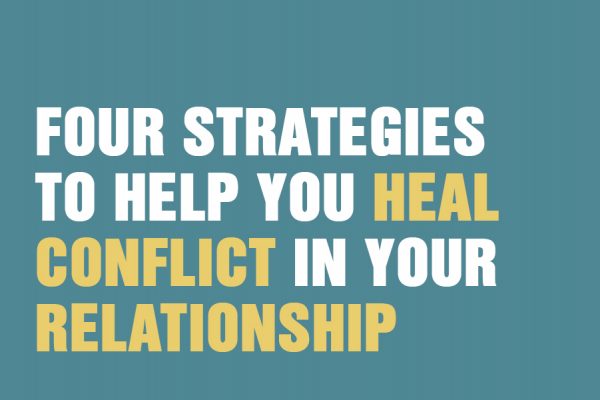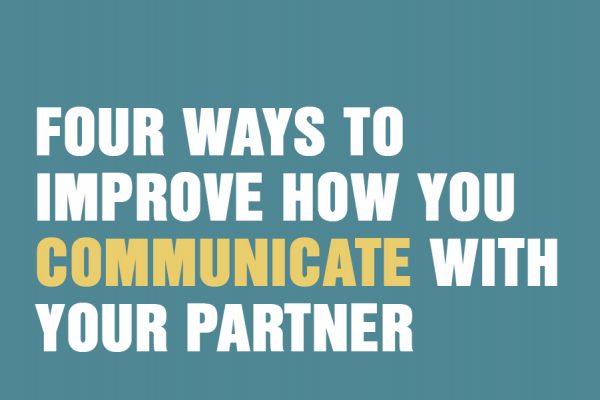No relationship is plain sailing. It takes a joint commitment to make them work, but sometimes, butting heads isn’t the issue. As people get content in relationships, they get more comfortable and things can start to slide. Once you settle into a routine, it can be easy to forget to make time for each other. Whilst the honeymoon phase certainly doesn’t last forever, you need to make sure the intimacy you had in the beginning doesn’t wane.
If you’re busy with work, friends, and chores, there’s every chance that your intimacy levels could dwindle, perhaps even unknowingly. Some people are more intimate than others, but we all need love and affection, both mentally and physically. Without it, relationships struggle in more ways than one.
In this blog, we’re going to look at some of the effects a lack of intimacy can have on a relationship, and what can be done to help bring it back and keep the relationship on track.
What Counts as Intimacy?
Firstly, it’s important to note what intimacy is. Many people assume it’s just sex, but this isn’t the case. There are two types of intimacy:
Emotional intimacy
Emotional intimacy is when you are able to connect on a deeper level. When you and your partner both feel safe, secure, loved, and trust each other, this is when you know you have an emotional connection. It can take time to build emotional intimacy and it often comes from actions that convey feelings. Being emotionally intimate is often more challenging than being physically intimate because it involves building a foundation of trust.
Physical intimacy
Some people are more physically intimate than others, but it’s part of our nature to need physical reassurance through hugging, touching, kissing, and hand-holding. Sometimes, physical intimacy can form before emotional intimacy because at the start of a relationship, there is often a sexual interest that draws both you and your partner together. A sexless relationship or one that is void of sexual intimacy can be difficult to sustain. This is often one of the most challenging aspects of a long distance relationship.
Both emotional and physical intimacy are key components of every romantic relationship.
Effects of Lack of Intimacy in a Relationship
Often, one person in a relationship is more intimate than the other. Relationships like this can still work, provided there is adequate communication between both people. If one person feels like they’re not getting enough from their partner and they don’t speak up, this can cause issues down the line, making it all the more important to have an honest conversation if you feel like intimacy is causing relationship issues between you and your partner.
Communication Problems
The first issues you’re likely to encounter stemming from lack of intimacy in your relationship are communication problems. If you don’t feel like you can connect with your partner in a deep sense, you might stop going to them when you feel sad, deflated, or unhappy, or when you have a problem. This causes an emotional distance. Without good communication, all relationships struggle because negative feelings are not addressed.
Self-Esteem Issues
Where physical intimacy is lacking, this can cause self-esteem problems. If your partner shows no interest in you physically, you might feel like they’re not attracted to you anymore, and this can cause you to question yourself. You might be asking yourself what’s wrong with you, or what about you is the reason your partner doesn’t seem interested in sexual activity with you. This can lead to you feeling like you’re not good enough and can result in low self-esteem. Issues with self-confidence can begin to affect other areas of your life outside your relationship, including at work.
Feeling Lonely and Isolated
We all feel lonely from time to time, but if your relationship is lacking the intimacy it once had, you may find yourself feeling isolated or lonely most of the time. If you feel lonely in a relationship, you might begin to question why you’re in one, or whether being with your partner is actually doing anything positive for you. Emotionally, it might feel like you have no one to talk to, and this can cause you to bottle up your feelings. This in itself can lead to mental health issues such as stress or depression.
Questioning the Relationship
When it feels like intimacy in a relationship is gone, it’s natural that you might be thinking about the future of your relationship. If you have no physical intimacy, what makes your partner different from a friend? If you lack emotional intimacy, what separates them from an acquaintance? When these questions start popping up, it will inevitably lead to you questioning your relationship as a whole. This is when separation or divorce can become real possibilities.
What Causes a Lack of Intimacy?
There are lots of reasons why you might be experiencing dwindling intimacy in your relationship, with stress being one of the big ones. Stress can come from any and all directions, including work or finances. It can be difficult to relax when you’re stressed, causing a decreased sex drive. From an emotional perspective, you might find that arguments are more frequent during times of high stress, pushing you away from one another and making it difficult to get along, causing one or both of you to pull back from communicating.
Another factor is schedules. If you both work and barely see each other, it can be difficult to keep that spark alive. The same goes for those who have child care commitments and don’t find much time for each other.
Personal issues are also a big cause of lack of intimacy. If you’re having self-esteem issues, this could cause you to pull back unintentionally simply because you’re not happy with yourself. Another aspect is mental health problems. If one person in the relationship is struggling with their mental health, this can have a knock on effect.
What to Do if You’re Experiencing Lack of Intimacy
If you feel like there’s a lack of intimacy in your relationship, this doesn’t mean the relationship is going to end. There are a number of things you can do to revive it, including:
Communication
When you feel like something isn’t quite right or like your partner isn’t meeting your needs, have an honest and open discussion with them about it. Make sure you’re communicating calmly and respectfully, and don’t criticise them or try to blame them. A good way to begin open and honest communication is to follow the formula: “When you do/don’t do X, I feel Y, because X”. For example, “when you ignore me, I feel upset because I feel disconnected from you”. There is no blame being placed when we speak this way, and therefore your partner is less likely to shut down or become defensive. This is much better than saying “You always ignore me, I can’t stand it anymore!” which will cause your partner to become defensive.
As mentioned, people often don’t always know they’re being distant, so gently raising the issue is the best way to go about it. You might feel vulnerable discussing underlying issues with intimacy, especially if you’re in a long-term relationship and haven’t had issues before, but know that it’s perfectly normal and something most couples deal with. If you don’t communicate honestly, it will wreak havoc further down the line.
Time
Another thing you can try is to make time for each other, even if you have children. Reserve one day a week or a couple of days a month to go out on a date and just enjoy each other’s company, working on maintaining that romantic connection. When you spend quality time with your partner, you are paving the way for more communication. You can also work on rebuilding your emotional intimacy and remembering why you’re with that person and all the things you love about them. A healthy marriage or relationship relies on making time for each other.
Counselling
If you’re still struggling, relationship counselling can help. At The Awareness Centre, we have a team of psychosexual therapists who can help you and your partner work through physical intimacy issues, as well as couples counsellors who can help you with the emotional side. Many couples find talking to a therapist to be incredibly useful in helping their relationship survive. To find out more about how our team of experienced and professional therapists can help you with intimacy issues, please get in touch.







